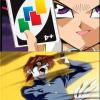 I know some of the folks doing the monetization of WildStar and they're not fools; they know exactly what they're doing. Here's the irony of this player type segmentation.
Players who contribute a ton of time to a game, far more than the average, are generally called Whales. These players usually represent less than 5% of a total player base and quite often are buying micro-transactions significantly more than the average casual player. WildStar is saying players who typically become whales in nature won't have to spend their money to play the game. It's basically the reverse of what happens in a typical MMO environment.
I know some of the folks doing the monetization of WildStar and they're not fools; they know exactly what they're doing. Here's the irony of this player type segmentation.
Players who contribute a ton of time to a game, far more than the average, are generally called Whales. These players usually represent less than 5% of a total player base and quite often are buying micro-transactions significantly more than the average casual player. WildStar is saying players who typically become whales in nature won't have to spend their money to play the game. It's basically the reverse of what happens in a typical MMO environment.
 I know some of the folks doing the monetization of WildStar and they're not fools; they know exactly what they're doing. Here's the irony of this player type segmentation.
Players who contribute a ton of time to a game, far more than the average, are generally called Whales. These players usually represent less than 5% of a total player base and quite often are buying micro-transactions significantly more than the average casual player. WildStar is saying players who typically become whales in nature won't have to spend their money to play the game. It's basically the reverse of what happens in a typical MMO environment.
I know some of the folks doing the monetization of WildStar and they're not fools; they know exactly what they're doing. Here's the irony of this player type segmentation.
Players who contribute a ton of time to a game, far more than the average, are generally called Whales. These players usually represent less than 5% of a total player base and quite often are buying micro-transactions significantly more than the average casual player. WildStar is saying players who typically become whales in nature won't have to spend their money to play the game. It's basically the reverse of what happens in a typical MMO environment.
Comments


If you like this check out how it has worked for eve online. They've been doing a program Identical to this since 2009. They offer PLEX which is a 30 day pilots license extension which allows you to buy with in game credits opposed to the monthly subscription.

Kind of reminds me of PLEX in EVE Online, something they have been doing, with success (afaik), for years.

They copied the idea from Eve Online, who introduced it six years ago (in 2008).
What is PLEX?
PLEX is an in-game item that can be used to pay for your subscription without using more traditional payment methods. By using PLEX, you can pay for your game time simply by playing the game.
You can buy PLEX through our Account Management site or you can buy PLEX with in-game ISK. Because PLEX is an in-game item you can also make in-game profit for yourself by buying and selling it on the market.
[Edit:] Dang, ninja'd while searching for Eve's description of PLEX. =P


I can't like this on the principle that the author didn't do their research and learn about PLEX. I'd be interested in another article comparing the systems and their success however.


That's interesting. I know EVE has a full time economist to keep things on track, does WildStar do any kind of analysis to check its virtual economy health? Does it take any actions to avoid enormous amounts of game gold to be farmed too fast to keep their monetization viable?

The trend of game developers taking over the in-game gold market (like this system, and Plex from EVE, or even the dual-currencies of GW2), is definitely a good thing for the developers, and probably also for the players. It does away with the shady, and potentially risky, third-party trades, and makes things like gifting a month of subscription-time to a friend easy.
However, in most cases, these schemes are a way for players to pay in order to avoid playing the game. I give you a $20 token from the cash shop, and you grind so-and-so much ingame gold or stuff for me. That's my only philosophical objection. If people would rather pay other people to do the chore of playing the game, then there are fundamental issues in the game itself. 20 years ago in the arcades, people didn't pay each other to grind Pac Man levels - the gameplay itself was the attraction and reward. If the gameplay is no longer the attraction, then is it really a game we're making?

This system also exists in Runescape, via the form of Bonds. While slightly different, bonds can be bought with real world cash, they can be sold in game for in game currency, or 14 days membership. This has led to large numbers of the FTP market from the game becoming Members through this system.

You're using the term 'whale' wrong. A whale, in a micro-transaction economy, refers to a player heavily investing real money into the game. These are the guys who purchase 1000 gift boxes with 0.001% chance to obtain a legendary pink penguin mount :D
Also as others have mentioned, this system is far from innovative, subscriptions for in-game currency have been done in older titles as well. I believe it's mostly a not-so-transparent way for the publisher/developer to allow purchasing in-game currency, eliminating/reducing illegal third party trading. It is good for the dev, but can likely be bad for the player, if it influences game design choices and/or gameplay itself - e.g. whales leading guilds because of cash and not leadership abilities / skill.

Everyone seems to be forgetting the origin of the CREDD here and this is the reason that CREDD is unlike PLEX.
In [most] other games the CREDD-equivalent is introduced into the game by, effectively, an NPC. You sink your gold/ISK/gems/whatever into an NPC to get the game time. Gold disappears, game time magically appears.
In Wildstar the CREDD is introduced into the system by players' real money. When you buy your CREDD you are giving another player in-game gold. The price of CREDD is also controlled by players and market forces instead of being controlled by this NPC. Gold is transferred, game time is transferred.
Big and fundamental difference.
I recommend reading the article again because the author details a lot in terms of this crucial difference, which a lot of people have seemed to gleam over so that they may skip to the end and point out that EVE did this first (which it didn't, it does something different).

Everyone seems to be forgetting the origin of the CREDD here and this is the reason that CREDD is unlike PLEX.
In [most] other games the CREDD-equivalent is introduced into the game by, effectively, an NPC. You sink your gold/ISK/gems/whatever into an NPC to get the game time. Gold disappears, game time magically appears.
In Wildstar the CREDD is introduced into the system by players' real money. When you buy your CREDD you are giving another player in-game gold. The price of CREDD is also controlled by players and market forces instead of being controlled by this NPC. Gold is transferred, game time is transferred.
Big and fundamental difference.
I recommend reading the article again because the author details a lot in terms of this crucial difference, which a lot of people have seemed to gleam over so that they may skip to the end and point out that EVE did this first (which it didn't, it does something different).
Actually, I'm pretty confident that by 'most' you only mean EVE's PLEX. Runescape's Bonds can be traded / auctioned by players themselves. Same goes for cash-shop-only items in many F2P games, which makes free and paying players have equal access.
But that is besides the point. The article doesn't include any research into similar systems and claims "CREDD System explained" but most of the article are just predictions and guesswork.

@Zamalek
As a person that have played both Wildstar and Eve Online I believe you have some facts wrong. I think you need to do more research into PLEX. PLEX are purchased outside of the game for real currency and then a ingame item is added to the player's account to be sold or used.
There are zero NPCs that have PLEX for sale. Therefore, please do more fact checking in the future.

Everyone seems to be forgetting the origin of the CREDD here and this is the reason that CREDD is unlike PLEX.
In [most] other games the CREDD-equivalent is introduced into the game by, effectively, an NPC. You sink your gold/ISK/gems/whatever into an NPC to get the game time. Gold disappears, game time magically appears.
In Wildstar the CREDD is introduced into the system by players' real money. When you buy your CREDD you are giving another player in-game gold. The price of CREDD is also controlled by players and market forces instead of being controlled by this NPC. Gold is transferred, game time is transferred.
Big and fundamental difference.
I recommend reading the article again because the author details a lot in terms of this crucial difference, which a lot of people have seemed to gleam over so that they may skip to the end and point out that EVE did this first (which it didn't, it does something different).
No. Not even close. EVE's PLEX's work exactly like CREDD. There is no magic fairy NPC introducing them, only players introduce them via the in-game market. There is ALWAYS real cash, paid for BY A PLAYER, involved in PLEX transactions.
If you're going to make big sweeping "declarations of fact", make sure your facts are correct. Especially when you start accusing people of not reading the article, when we read it just fine.

I have to say this isn't new in and of itself. Leveraging people's money OR time has been around for a while (particularly during the big Facebook BOOM). Wildstar does it better, but its not 'new' per se.
WildStar has launched a brilliant monetization system which should prove to be a game changer.



I had never heard a definition of 'whale' by time player invested, afaik it is about money they put into game.
And Wildstart seems to adapt a F2Pish style in fashion of "Linux is free if your time has no value",